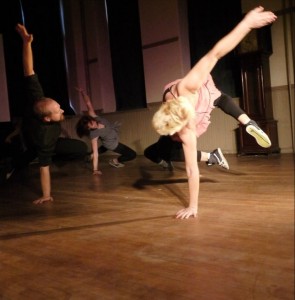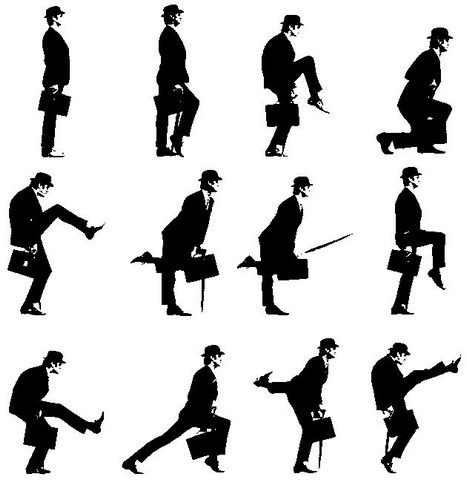 My favorite barista is a dancer. Today, while preparing another of her oh-so-perfect lattes, she mentioned that her dance company is interviewing people about what their jobs mean to them. They’re at the beginning of this creative endeavor, allowing the process itself to take them to an unknown destination. They do plan to create a dance. Will they interpret their interviewees’ stories through movement? Use interviewees’ words? Voices? Where will the interviewees’ stories lead the dancers? Where will the process itself lead them? Where will their artistry lead us all?
My favorite barista is a dancer. Today, while preparing another of her oh-so-perfect lattes, she mentioned that her dance company is interviewing people about what their jobs mean to them. They’re at the beginning of this creative endeavor, allowing the process itself to take them to an unknown destination. They do plan to create a dance. Will they interpret their interviewees’ stories through movement? Use interviewees’ words? Voices? Where will the interviewees’ stories lead the dancers? Where will the process itself lead them? Where will their artistry lead us all?
What is a job? What does “job” mean to you? Does it matter?
We’ve used the word since the 1620s, but I would guess that many seventeenth-century jobs are uninteresting to today’s students or no longer exist. According to Merriam-Webster, a job is “something that has to be done” or “a specific duty, role, or function” or “a regular remunerative position.” I assume most of us associate “job” with that third meaning, similar to dictionary.com’s “post of employment.”
None of these definitions address why we need a job, other than “remunerative.” (Perhaps a better definition might be “something your parents ask you about during spring break”!) “Remuneration” is something that rewards or pays. What the reward or pay might be is not part of the definition. So, what do you want your reward to be? A paycheck? A large paycheck? Vacation time? Healthcare? Prestige? Comfort? Luxury? Creating something? Changing an expectation? Providing care? Increasing knowledge? Changing the world?
These questions might not be on your next interviewer’s list, but they should be on your list so that you will know what you’re seeking, why, and how to demonstrate that you and the job “fit” one another. Exploring these questions with a friend, family member, or a career counselor (or on our website) is an ongoing, challenging, and meaningful exercise.
So, what do you think? A past blog of mine addressed a similar issue and invited readers to complete a survey. You are welcome to do so now, and to share this invitation with friends and family so that we have many responses.
As a career counselor and someone immensely curious—from a sociological and historical perspective—about “work,” I am looking forward to the future dance creation of Real Live People (in) Motion, and I’d love to read your thoughts in our survey.
![gifts[1]](https://ulife.vpul.upenn.edu/careerservices/blog/wp-content/uploads/2012/11/gifts1-300x300.jpg) As many of us enter a season of gift giving, don’t forget to claim the gifts that Career Services has for you. Many of these gifts are available throughout the year or at set times, in person or online, occasionally or 24/7. What do you need? If it regards your career, we probably have something you can use.
As many of us enter a season of gift giving, don’t forget to claim the gifts that Career Services has for you. Many of these gifts are available throughout the year or at set times, in person or online, occasionally or 24/7. What do you need? If it regards your career, we probably have something you can use.





